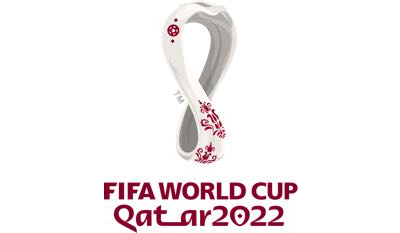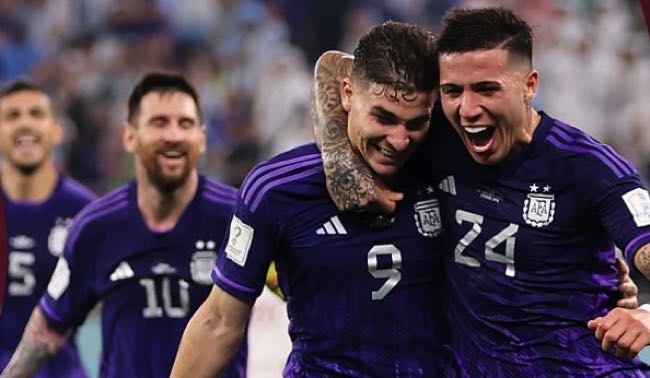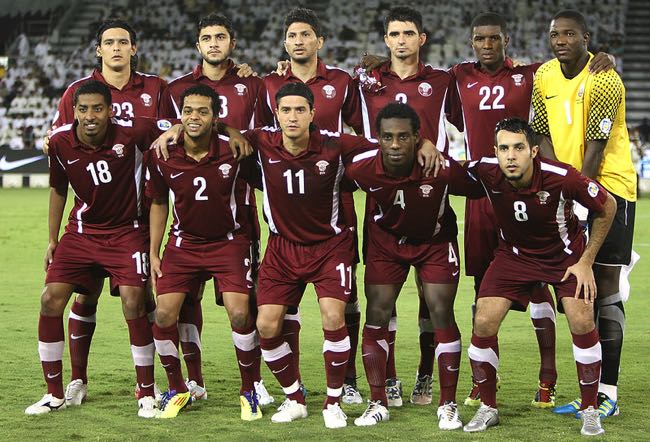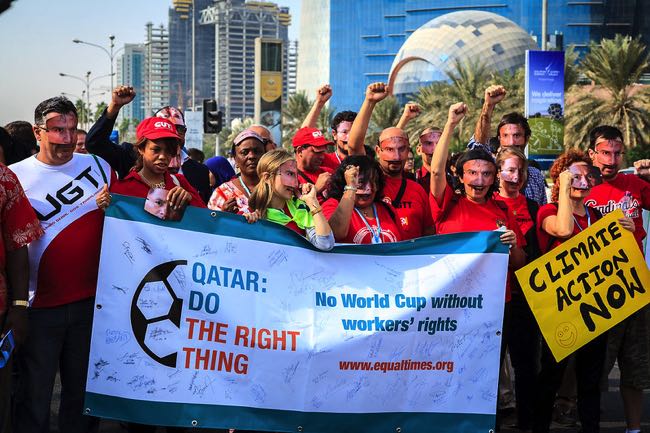 Hype and hyperbole surround and engulf football but few can doubt that the 2022 Qatar World Cup was genuinely unique. It was the first World Cup to be held in the Middle East, only the second in Asia (after the 2002 tournament in Korea and Japan) and the first to be held in (Northern Hemisphere) winter – this truly was a World Cup like no other.
Hype and hyperbole surround and engulf football but few can doubt that the 2022 Qatar World Cup was genuinely unique. It was the first World Cup to be held in the Middle East, only the second in Asia (after the 2002 tournament in Korea and Japan) and the first to be held in (Northern Hemisphere) winter – this truly was a World Cup like no other.
From the moment Qatar was selected to host the global extravaganza – if not earlier – it was controversial. Qatar’s record on human rights was criticised and this condemnation only intensified as the human cost of building several new stadia became apparent. As the World Cup drew closer, there were fears over how LGBTQ+ fans would be treated. There were also major doubts over the standard of fan accommodation and, somewhat less seriously, a very late U-turn from the organisers about the sale of alcohol.
As is so often the case, pre-tournament doubts melted away once the sporting action began. In the end, many fans and pundits were hailing Qatar as the best World Cup ever. That may be a case of recency trumping memory and logic but there is no doubt the 2022 World Cup was a cracker. We saw a record number of goals, there were far more upsets than usual, many of the groups ended in final-game thrillers and the showpiece itself was a six-goal classic that saw the game’s rising star bag a hat-trick and yet still fail to topple the GOAT!
2022 World Cup Finishing Positions
| Place | Team | Stage of Elimination | Manager | Top Scorer |
|---|---|---|---|---|
| 1st | Argentina | Winner | Lionel Scaloni | Lionel Messi (7) |
| 2nd | France | Runner up | Didier Deschamps | Kylian Mbappe (8) |
| 3rd | Croatia | Semi finals | Zlatko Dalic | Andrej Kramarić (2) |
| 4th | Morocco | Semi finals | Walid Regragui | Youssef En-Nesyri (2) |
| 5th | Netherlands | Quarter finals | Louis van Gaal | Cody Gakpo (3) |
| 6th | England | Quarter finals | Gareth Southgate | Bukayo Saka (3) & Marcus Rashford (3) |
| 7th | Brazil | Quarter finals | Tite | Richarlison (3) |
| 8th | Portugal | Quarter finals | Fernando Santos | Goncalo Ramos (3) |
| 9th | Japan | Round of 16 | Hajime Moriyasu | Ritsu Doan (2) |
| 10th | Senegal | Round of 16 | Aliou Cisse | Boulaye Dia (1), Famara Diédhiou (1), Bamba Dieng (1), Kalidou Koulibaly (1) & Ismaïla Sarr (1) |
| 11th | Australia | Round of 16 | Graham Arnold | Mitchell Duke (1), Craig Goodwin (1) & Mathew Leckie (1) |
| 12th | Switzerland | Round of 16 | Murat Yakin | Breel Embolo (2) |
| 13th | Spain | Round of 16 | Luis Enrique | Alvaro Morata (3) |
| 14th | USA | Round of 16 | Gregg Berhalter | Christian Pulisic (1), Timothy Weah (1) & Haji Wright (1) |
| 15th | Poland | Round of 16 | Czesław Michniewicz | Robert Lewandowski (2) |
| 16th | South Korea | Round of 16 | Paulo Bento | Cho Gue-sung (2) |
| 17th | Germany | Group Stage | Hansi Flick | Kai Havertz (2) & Niclas Füllkrug (2) |
| 18th | Ecuador | Group Stage | Gustavo Alfaro | Enner Valencia (3) |
| 19th | Cameroon | Group Stage | Rigobert Song | Vincent Aboubakar (2) |
| 20th | Uruguay | Group Stage | Diego Alonso | Giorgian de Arrascaeta (2) |
| 21st | Tunisia | Group Stage | Jalel Kadri | Wahbi Khazri (1) |
| 22nd | Mexico | Group Stage | Gerardo Martino | Luis Chavez (1) & Henry Martin (1) |
| 23rd | Belgium | Group Stage | Roberto Martinez | Michy Batshuayi (1) |
| 24th | Ghana | Group Stage | Otto Addo | Mohammed Kudus (2) |
| 25th | Saudi Arabia | Group Stage | Herve Renard | Salem Al-Dawsari (2) |
| 26th | Iran | Group Stage | Carlos Queiroz | Mehdi Taremi (2) |
| 27th | Costa Rica | Group Stage | Luis Fernandez Suarez | Keysher Fuller (1), Yeltsin Tejeda (1) & Juan Pablo Vargas (1) |
| 28th | Denmark | Group Stage | Kasper Hjulmand | Andreas Christensen (1) |
| 29th | Serbia | Group Stage | Dragan Stojkovic | Aleksandar Mitrović (2) |
| 30th | Wales | Group Stage | Robert Page | Gareth Bale (1) |
| 31st | Canada | Group Stage | John Herdman | Alphonso Davies (1) |
| 32nd | Qatar | Group Stage | Felix Sanchez Bas | Mohammed Muntari (1) |
Note that rankings are based on the stage of elimination, the overall record (wins, draws, defeats), goal difference and goals scored.
Winners – Argentina

Argentina celebrate win at World Cup (Bradford Timeline / Flickr.com)
As the table above shows and anyone with even a vague interest in football knows, Argentina won the 2022 Qatar World Cup. Below we can see a brief summary of how they did this, starting, of course, with that incredible defeat in their first game to Group C minnows Saudi Arabia. Who could have predicted their time in Qatar would end in glory after that shocking, inauspicious start?
Argentina’s Route to World Cup Glory
| Game | Stage | Opponent | Result |
|---|---|---|---|
| 1 | Group | Saudi Arabia | Lost 2-1 |
| 2 | Group | Mexico | Won 2-0 |
| 3 | Group | Poland | Won 2-0 |
| 4 | Last 16 | Australia | Won 2-1 |
| 5 | Quarter Final | Netherlands | Won 4-3 on penalties (2-2 after normal time and extra time) |
| 6 | Semi Finals | Croatia | Won 3-0 |
| 7 | Final | France | Won 4-2 on penalties (2-2 after normal time, 3-3 after extra time) |
As we can see, Argentina were superb after that opening defeat and won their next three games within 90 minutes. It should also be noted that despite Saudia Arabia’s brilliant performance, Lionel Messi and co still dominated the match and were by far the better side. They had 15 shots compared to the victors’ three and despite scoring twice, Saudia Arabia posted an expected goals value of just 0.15 (Argentina’s was 2.26).
However, for all the plaudits they won and some of the brilliant football they produced, and their undeniable team spirit and desire, it should be remembered that they required two wins in penalty shootouts in order to lift the trophy. An overall record of played seven, won four, drawn two, lost one is not especially impressive.
Tournament football is about getting the job done and in modern times it is rare for a side to win a major international trophy without having to brave at least one shootout. Even so, for all that Messi and his team deserved their glory, we feel it would be disingenuous to hail this as one of the great sides of World Cup history.
Performance of the Hosts

Qatar team (Doha Stadium Plus Qatar / Flickr.com)
Whilst Argentina went all the way, at the opposite end of FIFA’s 32-team ranking were the hosts Qatar. To the great pleasure of many players and fans (see below for some of the reasons why the host nation was not universally popular) Qatar finished bottom of the pile.
Merely by playing at the World Cup (as hosts they did not have to qualify) this was their best-ever performance but fans and officials would have hoped for so much more. In the years prior to the tournament Qatar, as is their wont, threw a lot of money at the problem, hoping to improve the national side.
Their vast scouting and development project, which via its Football Dreams arm brought players to Qatar’s Aspire Academy from far and wide, ultimately failed. A number of overseas nationals were naturalised and $1bn was spent but it ended in abject failure. This was the worst performance ever from a World Cup host.
Qatar lost all three of their games and scored just a single goal. They ended with a goal difference of minus six. They now hold the unwanted distinction of being the first host to lose all three games and we will not be holding our breath for their World Cup encore.
Tournament Hosts & Notable Moments

Omar Chatriwala / Flickr.com
As noted, Qatar were and – even after a successful competition – continue to be controversial hosts for the 2022 World Cup. There were a number of concerns before the tournament began, in the build-up to it and then also various several notable incidents that took place during the competition.
Corruption in Bidding
Perhaps the biggest concern about Qatar was how they even got to host the showpiece tournament of the globe’s most popular sport in the first place. As with Russia before it, there were many allegations of corruption and bribery. Many questioned how a tiny nation of just under 3m people, the vast majority (around 2.3m) of whom are not Qatari, came to host the World Cup.
Around the same size as Yorkshire in terms of area, Qatar is mostly desert and prior to winning the bid the gulf state had no real football history. Their average world ranking with FIFA is 80 and they had never qualified for a World Cup before. In addition, they had just one viable stadium and a climate that was unsuited for football even in winter and made playing in summer, the traditional home of the World Cup, impossible.
However, whilst certain claims about corruption within FIFA have been substantiated and officials arrested, Qatar deny all allegations that they have acted illegally. Indeed, the Guardian newspaper noted that: “There is no chain of evidence linking Qatar itself to any kind of corruption in securing its World Cup bid success.” That said, many still strongly believe that, one way or another, it was Qatar’s financial clout that enabled them to host the World Cup.
Human Rights Issues
Aside from the alleged corruption, and the undeniable notion that “money talks”, that brought the World Cup to Qatar, the umbrella term of “human rights” concerns was the other main controversy surrounding the 2022 World Cup. Broadly speaking these issues were:
- LGBTQ+ Rights – Homosexuality and even campaigning for LGBTQ+ rights are criminalised in Qatar.
- Women’s Rights – Human Rights Watch and other groups have criticised the lack of freedoms and rights women have in Qatar.
- Migrant Workers – Exactly how many migrant workers died building the seven new stadia for the 2022 World Cup is much-disputed. Official records list fewer than 50 deaths but most believe the toll was far, far higher, possibly in excess of 5,000. In addition, there were grave concerns about the conditions the workers had to endure, including terrible heat, poor living conditions and the kafala system of indentured servitude.
A Winter World Cup
Aside from these huge, serious issues, there were a number of other concerns about the 2022 World Cup. The tournament would normally be played in the Northern Hemisphere’s summer but June temperatures in Doha make football impossible, with average lows of around 26 degrees Celsius and highs over 40 degrees. This meant a move to winter, causing huge disruption to the global football calendar and meant fans in Europe could not quite enjoy the tournament in the same way.
Environmental Concerns
Even in winter the temperatures at the World Cup were high, necessitating air conditioning on the pitches and inside the stadia. Organisers claimed this would be the first carbon-neutral World Cup but these claims have been derided. Aside from the madness of seeing huge pitch-side fans, the biggest environmental problems stemmed from the fact that so much new infrastructure had to be built.
Expense
As said, Qatar was a nation with no football background and in building seven new stadia, upgrading the one existing ground and building the infrastructure needed to handle over a million football fans, it is believed Qatar spent around $220bn. Incredibly, official sources put the cost at $8bn. One Qatari official, the ambassador to Russia, has accepted a total of around $200bn was spent but the exact cost will never be truly known and depends on exactly what is included.
Whatever figure one picks though, this development undoubtedly had a massive environmental impact. What’s more, whilst it is claimed that all of the stadia will be repurposed, or even dismantled in the case of the remarkable Stadium 974, many doubt that they will host enough events to truly justify their cost.
Whilst Qatar is a wealthy country in terms of its GDP per capita, that $220bn figure is still in excess of its total GDP. No nation can afford to spend such vast sums without feeling it. Moreover, given some of the workers who built the stadia, roads, hotels and other infrastructure were paid as little as $275 per month, many find the cost morally offensive.
Fan Accommodation
Whilst many new hotels were built by low-paid migrant workers, there were still far more fans than hotel rooms. Much of the accommodation was taken up by officials, important guests and the squads themselves, forcing the prices for other rooms even higher.
Qatar’s answer to this problem was to build tented fan villages but on the eve of the tournament, television reports revealed these to be of poor quality, if they were even finished at all. The tents were packed closely together and offered no air conditioning only fans, a big issue given the high temperatures, plastic construction and lack of shade. Washing facilities were basic with murky water and supporters were forced to pay around £175 per night for this “luxury”.
To Beer or Not to Beer?
Qatari law does not allow alcohol to be consumed in public, which didn’t sit particularly well with FIFA’s biggest sponsor, Budweiser. As part of their World Cup bid, Qatari officials stated that these rules would be relaxed and beer would be available inside the grounds. Eight days prior to the tournament, they announced that stadia beer tents would be moved to less prominent positions and beer would not be available inside the actual grounds (but still within the perimeter of the stadia).
Then, just two days before the big kick-off, it was announced that Qatar would be going back on this and their initial World Cup bid and that beer sales would be restricted yet further. Whilst alcohol would still be served in corporate hospitality boxes, it would not be allowed for the masses, other than in the designated fan parks away from the grounds.
Compared to the death of potentially thousands of migrant workers and the fears of gay and LGBTQ+ fans about even visiting Qatar, this is clearly a bagatelle. However, for many, beer and football do go together, and there were chants of “Queremos cerveza” (we want beer) from Ecuador fans during the tournament’s opening game! Perhaps more concerningly, it made many fans wonder what other assurances the organisers might renege on.
No Arrests!
Whilst many lamented the lack of a beer, others praised the more civilised atmosphere that ensued. Whether this was solely down to the absence of a cold Bud, or due to the fear of the stern local law enforcement, not to mention the reduced number of fans, especially from European countries, we cannot be sure.
Whatever the cause, this was another record-breaking aspect of Qatar 2022, this being the first major tournament where no English or Welsh fans were arrested! Throughout the whole tournament, in fact, disorder and violence were virtually non-existent, though Samuel Eto’o perhaps didn’t get the memo!
No Love for One Love
Due to many of the human rights issues mentioned, and in particular with regards to LGBTQ+ rights, many players and sides wanted to make some form of protest or comment. Seven European sides, including England, wanted to wear One Love armbands to show support for the LGBTQ+ world.
However, FIFA warned that players could be cautioned for doing so. These sporting sanctions went beyond their own regulations for such an “offence” which would have been fines that the FA and other bodies were prepared to pay. In the end, no side wore the armbands and many felt the issue became an unwanted distraction at the start of the tournament.
In protest at FIFA’s banning of their protest, and diktat that players should not express opinions on such matters, the German team covered their mouths during the pre-match photo for their first game with Japan. On Twitter the squad said that “human rights are nonnegotiable” and “Denying us the armband is the same as denying us a voice.”
Wales showed their support and solidarity off the pitch by having the rainbow flag on display at their training facilities. However, some of their staff, as well as various Welsh supporters, had rainbow hats confiscated inside stadia at some of their games. Security at the ground for Wales’ opening game against USA said that fans would not be allowed in with such hats. In addition, a US fan with a rainbow flag was told by an unidentified fan on the metro system that he would be killed and that the “flag is banned in this country”.
